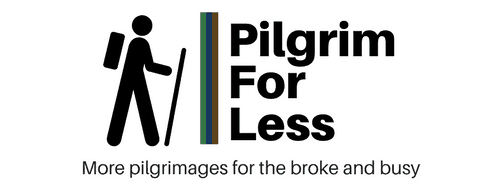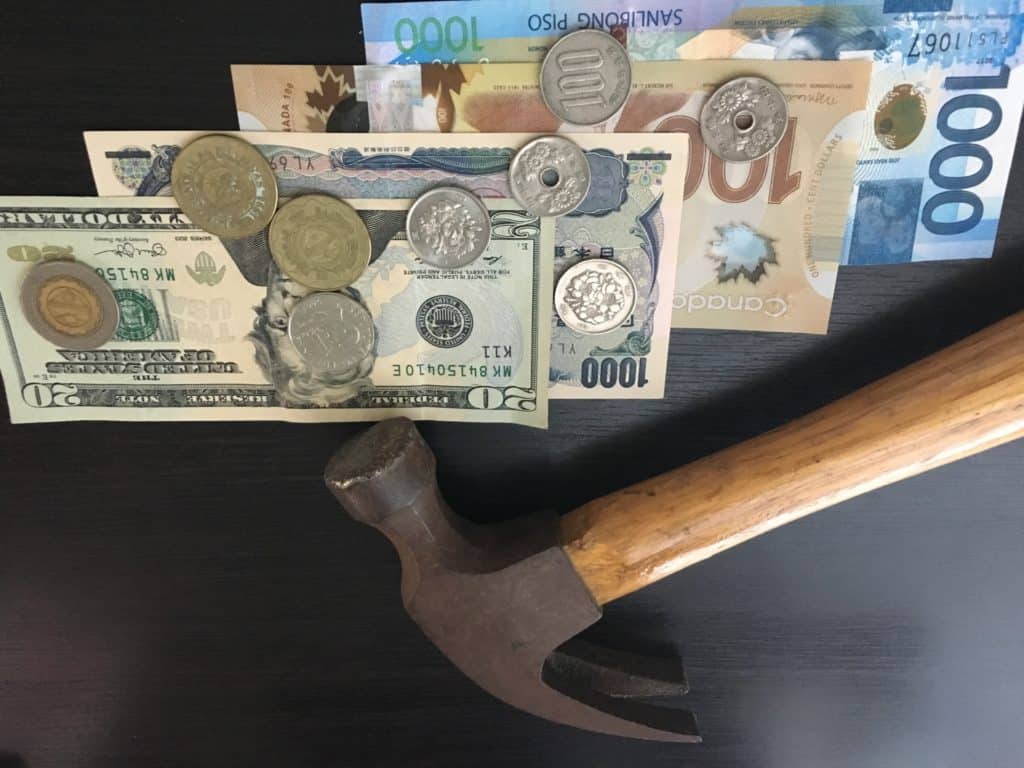I have a lot of things to be working on, and crushing my debt is definitely one of them.
Growing up, I lived a typical, parents-are-immigrants-from-the-Philippines middle-class life. Throughout high school and college, finances were a bit of a stretch for my parents because of having to take care of my elderly grandparents, my brother, and me. After I graduated from college, I really wanted to be financially independent of my parents so that they wouldn’t have to worry about me.
I wasn’t able to find a full-time engineering job immediately after college because the aerospace industry was still in recovery mode from the Great Recession of 2008. Due to not finding a job immediately, it was a slow process taking over my most major debt at the time: student loans. Eventually, I was able to land an engineering job, and as my salary increased, I was able to tackle more and more of my student loans and take on other kinds of debt.
Honestly, I wasn’t financially savvy in my early 20’s. Not that I went overboard with credit cards, but I didn’t do a spectacular job paying them off so I was often hit with interest charges, and I didn’t make fast progress on creating a dent on my student loans.
It wasn’t until my late 20’s that I began seriously considering personal finance because of the new debts I took on. To make things more complicated, I didn’t heavily prioritize paying off my student loans. The process of learning more about personal finance has been slow-going.
According to the survey I sent out before launching Pilgrim for Less, 81% of those who took the survey said that not having enough money was an obstacle to going on more pilgrimages. Obviously, this makes sense because the typical thought we have regarding pilgrimages is that they’re long trips that cost us a week or two of our time and thousands of dollars of our money.
Whew. That can be a lot! And I can relate because I carry a lot of debt, but despite having lots of debt, I’ve still been able to pull off going to many places on pilgrimage including amazing opportunities at the recent World Youth Days, and places I’ve solo-traveled. Even with pilgrimage opportunity success, that doesn’t excuse me from tackling my debt, but I still want to be more financially independent for flexibility and traveling/pilgrimaging more.
Here’s what I’m currently dealing with:
Credit Cards
I hardly carry cash. Of course, this frustrates my parents since they’re old school like that. Most things I purchase are through my credit cards.
Long story short, I accumulated two credit cards: one with points bonuses, and one regular one that I later upgraded/converted to a travel card to earn points. When I started traveling to Japan a lot in 2015, I started learning more about earning points and miles using credit cards. Because of that, I’ve applied to three new credit cards that help me earn points and miles. My wallet has a good chunk of plastic in it, and it’s not from plastic surgery.
I pretty much use credit cards whenever I can in order to help keep track of spending. Since I use Mint and have connected many of my accounts to it, I’m able to track my spending. Credit card purchases easily categorize into the different categories I’ve set in Mint so I know where I’m spending my money. Of course, Mint lets me manually enter in cash transactions too, but I hardly use that feature since it’s not nicely automatic. Millennial problem, I know.
Up until January 2018, I manually paid credit cards.
Like I said, I wasn’t financially savvy in my 20’s so I often got hit with interest charges for not paying off my credit cards in a timely manner. Now, after reading books and blogs about credit cards and personal finance, my credit cards are paid automatically. I use Mint to make sure I’m not way off budget where an automatic credit card payment would cause overdraft fees on my checking and savings accounts.
I wish I could be victorious and say “I JUST PAID OFF ALL MY CREDIT CARDS!”, but since I use them for practically everything I spend money on, and they get paid automatically, I can’t really have that feeling anymore.
But that’s okay!
With the data I’ve been tracking, my credit card spending averages $2000 month-to-month. Now, I’ve been averaging a little higher lately because of the international travels I’ve completed, one of which was unintentional and not properly budgeted for.
An average $2000 of credit card debt every month seems like a lot, but that actually covers most of my typical expenses (like food (lots of food)). And because my credit cards are automatically paid, I’m no longer worried about my balances getting way out of hand.
Loans
Fun fact: part of my motivation of pursuing engineering was knowing that having such a career would help me pay off student loans. Now years after college, I’m not wrong. But it’s been years after college, and I still have those pesky student loans…
After graduating, I had that lull of not having a job. This actually freaked me out for multiple months because I knew that my student loan grace period would end, and I would have no way to start paying back my loans, and my parents weren’t in the best position to help me out with that at the time. Thankfully, I landed a full-time engineering job and was in better position to start paying off $80k+ in student loans.
Then I got a new car. $17,000ish for a new 2010 Honda Civic. Justifiable because my new job was 60 miles away from home. That was a lot of driving so I needed something with great reliability and gas mileage.
I was able to pay off that car in 2014!
Fast forward to 2015, and now I’ve got a mortgage! $170k+ for a shiny, brand new house. Not having that car payment really helped as did the lack of daily avocados and toast.
Also in 2015, I started new graduate degree. I can’t really count grad school as part of my overall loans because my grad degree is paid for by my company, which is pretty sweet.
Now, I had been making payments to my undergrad loans until 2015. With the new house, I was quite challenged in paying those back, but being in grad school helped because being a full-time student in grad school put my undergrad loans into deferment so I didn’t have to pay those monthly, even though interest accumulates still.
In 2016, my brother found himself in a situation with a really unreliable car and a really long commute between home and his jobs/school. By then, I had made lots of extra money because of work trips to Japan, so I offered to give him my 2010 Honda Civic. And I did. That was enough justification for me to go buy a new 2016 Honda Civic, but since I was able to pay a huge down payment, I only had $16000ish left to pay back on it.
Currently, I’m sitting at about $11,000 on my car, $150,500 on my mortgage, and $6000 on my undergrad student loans.
Added up, that’s a lot of money to pay back!
Action Plan
The goal of Pilgrim for Less is to talk about going on more pilgrimages for less time and money. Ya know, it’s meant for us who are broke and busy!
Because I’m carrying over $175,000 in debt, going places for less money is definitely a priority of mine. I can relate to those who are in the same boat or similar where not having enough money is hindrance to going on more pilgrimages.
But!
I’ve been able to have lots of debt and still go on pilgrimages. Check out my Pilgrimage Reports.
Here’s my action plan:
- Pay off and CRUSH my undergrad student loans first because they carry the higher interest rates, and I’m relatively close to finishing them off anyway
- Pay off and CRUSH my 2016 Honda Civic’s loan
- Pay off and CRUSH my mortgage, but this is so low of priority because I already have substantial equity on it and can just sell it if I need to
- As I free up more cash, save more money automatically for traveling/pilgrimages AND paying off other debt faster
- Stay within budget regarding credit card spend
I’m not perfect, and I’m still learning how to be better about my money. At least this action plan is simple enough, without the nitty gritty details, but it’s enough to define tangible goals.
What I haven’t discussed yet is the how. How will I pay these off. That, my brothers and sisters, is future content. 🙂
Question for you–what’s your biggest priority debt to crush?

JR is a full-time engineer working in the aerospace industry. Apart from having such a fly job, he flies unto the arms of Our Lady and the Church pursuing his faith and a relationship with Christ. Over the past several years, faith and flying via pilgrimages became a thing. When he’s not being fly, JR hangs out with family, friends, his chihuahua, and with thoughts of the next trip.

